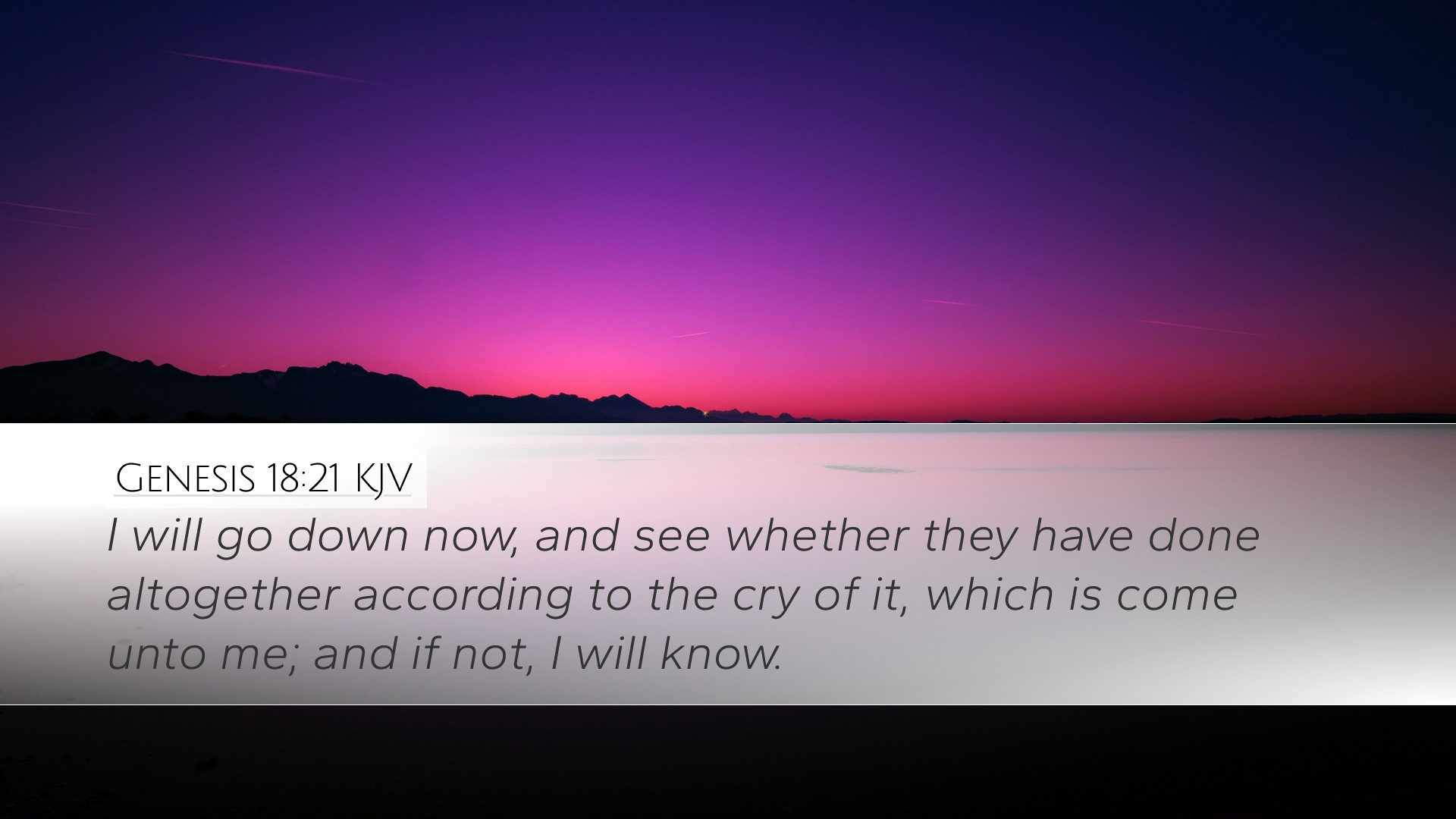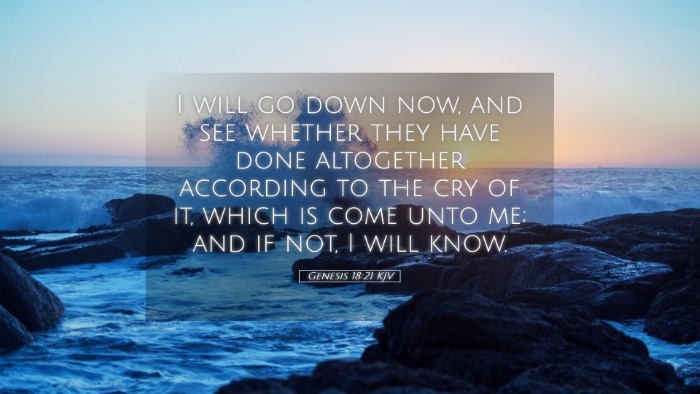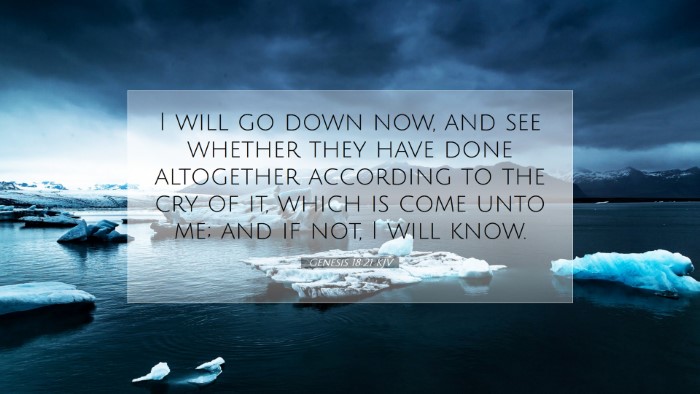Commentary on Genesis 18:21
Verse Text: "I will go down now, and see whether they have done altogether according to the cry of it, which is come unto me; and if not, I will know."
Introduction
This passage occurs within a profound narrative of divine interaction and revelation. The Lord is grappling with the weighty decision regarding the fate of Sodom and Gomorrah. In this commentary, we draw insights from esteemed public domain commentaries to enrich our understanding of God’s nature through this verse.
The Divine Investigation
Matthew Henry emphasizes that God's proclamation of His descent to investigate the moral decay in Sodom signifies His just nature. It reflects a methodical approach—God desires to know through observation rather than impulsively executing judgment based on hearsay.
Albert Barnes elaborates that this act of "going down" represents God’s willingness to engage with humanity directly. It underscores the importance of empirical observation before divine judgment. This highlights a theology of relationship, where God seeks to understand His creation personally.
The Nature of Divine Justice
Adam Clarke interprets this verse as revealing God's justice and mercy. The 'cry' that has reached heaven suggests the prayers and intercessions for deliverance from the wickedness prevalent in Sodom. God’s decision to investigate is not due to a lack of knowledge, but rather a method of establishing justice in a manner consistent with His holy character.
God's Omniscience versus Human Understanding
This inquiry lies at the heart of understanding God’s character. While God is omniscient and fully aware of all actions and intents, His action of ‘going down’ suggests a relational aspect with humanity. Matthew Henry comments that this narrative invites readers to contemplate the dichotomy of God’s omnipotence and His compassionate involvement with creation.
The Cry of Sodom
The 'cry' of Sodom represents both the outcry of the oppressed and the abhorrent nature of its sinfulness. Albert Barnes notes that such a cry can be understood as a call for justice. In this context, believers are reminded of the importance of standing against injustice, as the Lord acknowledges such outcries.
The Theological Implications
This verse imparts significant theological implications about God’s willingness to investigate and engage with human affairs:
- Divine Justice: God's justice is evidenced in His method of ensuring that the judgments He renders are founded on truth.
- Relational God: This passage demonstrates a God who desires to be in relationship with humanity, as opposed to a distant deity.
- Moral Responsibility: The verse underscores the human responsibility to respond to the divine call to righteousness and justice.
Reflection on Human Sinfulness
Adam Clarke illustrates how this narrative invites solemn reflection on sinfulness in humanity. The divine oversight serves not only as a warning to Sodom and Gomorrah but also to today’s society. It encourages leaders, pastors, and believers to be vigilant against injustices within their realms.
The Role of Intercession
This passage also highlights Abraham's role as an intercessor for Sodom. Matthew Henry notes that the act of God investigating the situation allows for the opportunity for Abraham’s intercessions, underscoring the power of prayer and the responsibility believers hold in advocating for others before God.
Conclusion
Genesis 18:21 profoundly encapsulates themes of divine justice, relational engagement, and the moral implications of sin. As pastoral leaders, students, and scholars engage with this text, they are invited into a deeper understanding of God's nature and their role in interceding for those in need. The insights from these commentaries converge to illuminate God’s just character and His earnest engagement with humanity's plight.


